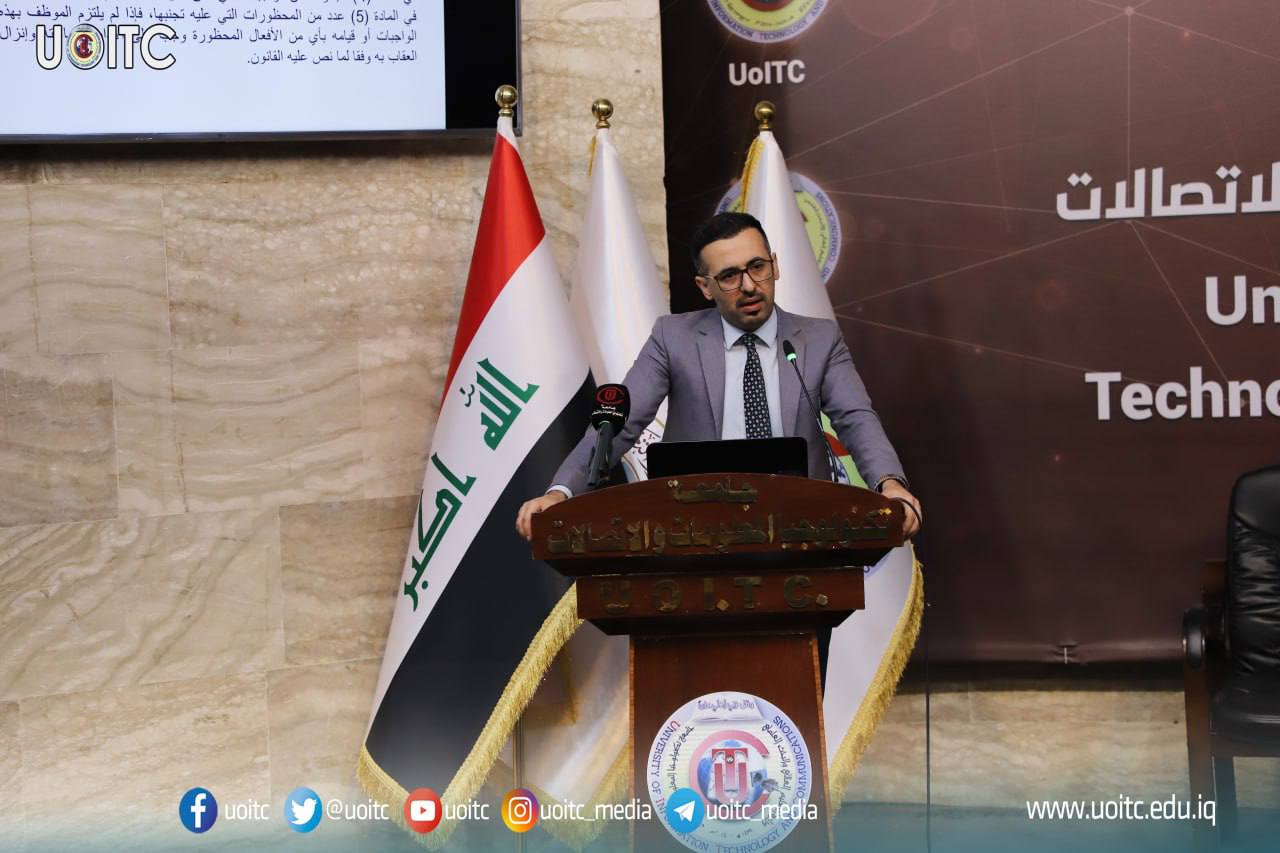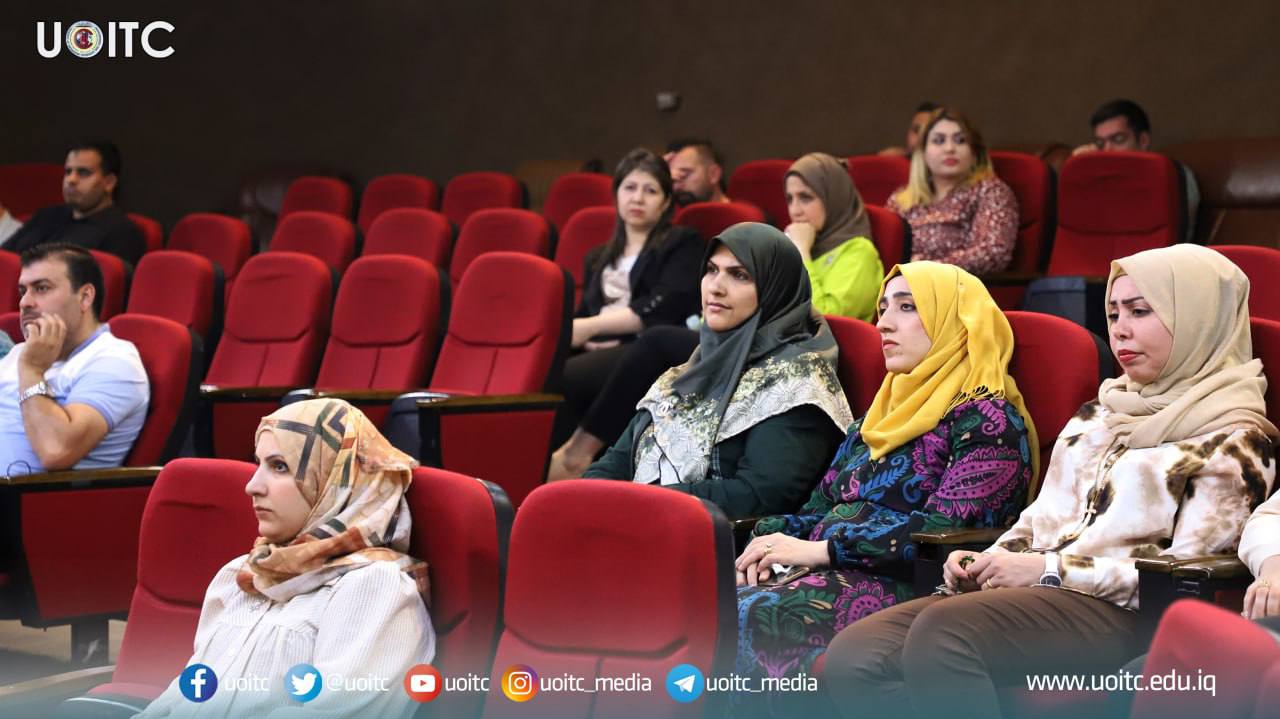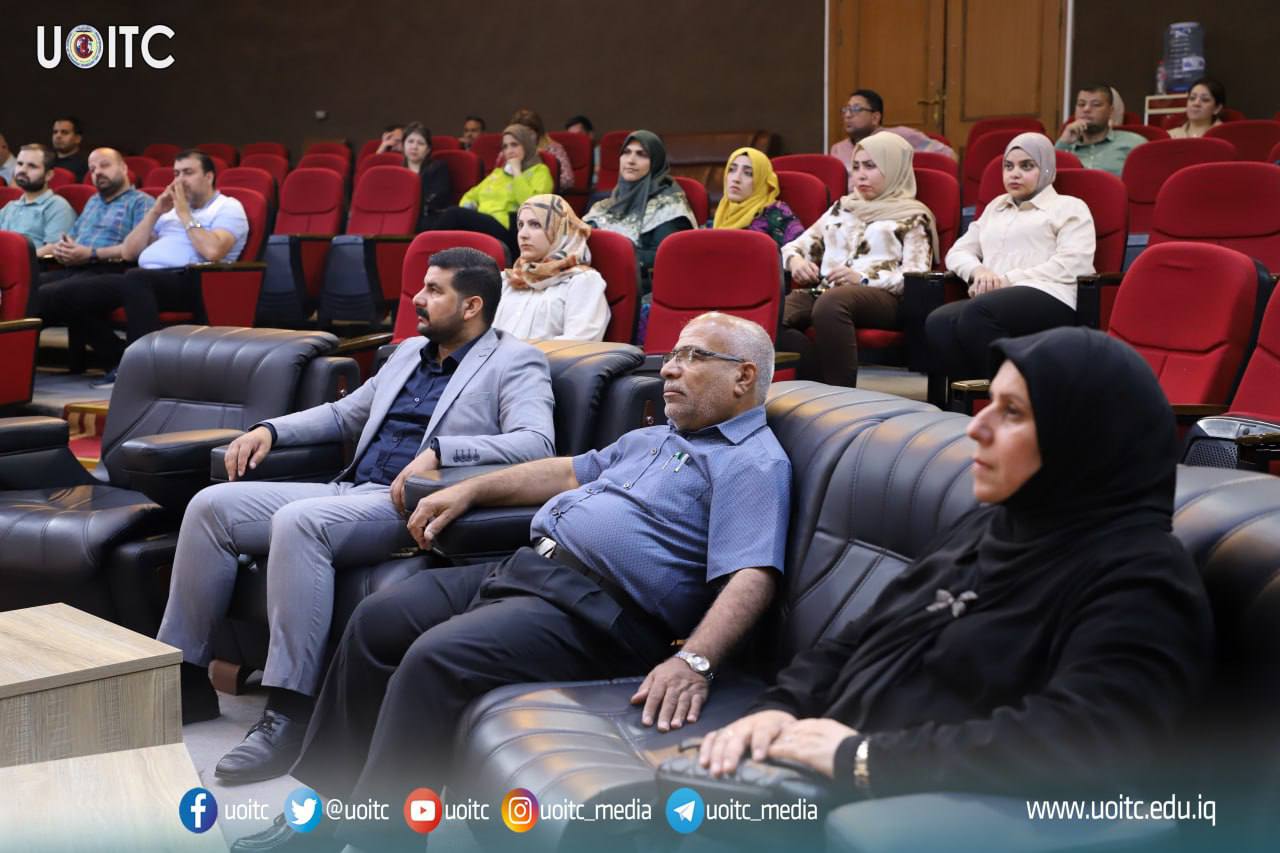The Continuous Education Center at the University of Information Technology and Communications held an awareness seminar on developing law skills within the implementation of the programs and activities of the National Strategy for Higher Education for the year 2024, which was titled Employee Guarantees in Administrative Investigation under the Public Sector Employee Discipline Law No. 14 for the year 1991.
The symposium was presented by the head of the legal department at the University, Dr. Muhammad Karim. He explained the law articles that make up the law, which are 28 articles that regulate employee behavior within government institutions, including defining the employee’s duties and rights during the administrative investigation stage, such as performing work according to specific dates and not being absent, and respecting superiors and managers, respecting citizens and facilitating the completion of their transactions, in addition to preserving state funds and refraining from exploiting the job to achieve personal benefit or profit, and the symposium also highlighted job taboos such as combining two jobs, participating in auctions, and using state vehicles personally.
The lecturer reviewed the disciplinary penalties for employees, which are (drawing attention, warning, cutting off salary, reprimanding, reducing salary, demotion, dismissal, and removal), which are preceded by interrogation, or the formation of an investigative committee, and the conditions required to form and select the objectives of the disciplinary committee.
The symposium also referred to the administrative investigation guarantees for the employee, the organization of a record of the committee’s procedures, the employee’s right to defense, the impartiality of the investigator, and the right to appeal the administrative decision.
The lecturer added that some obstacles hurt the investigation process, including transferring the employee, seconding him, or appointing him to another department, enjoying vacations and despatches, and the employee’s refusal to appear before the investigative committee. There are procedures for investigation, and there are principles for recording the statement of the employee referred to an investigative committee, and then a decision of imposing the penalty, as for the grievance, it is one of the fundamental guarantees, and it is a formal condition for accepting the appeal before the Employees’ Judicial Court within 30 days from the date of notification.



